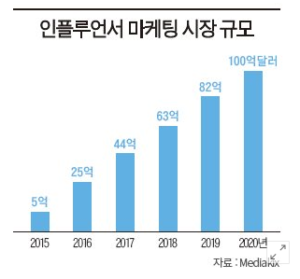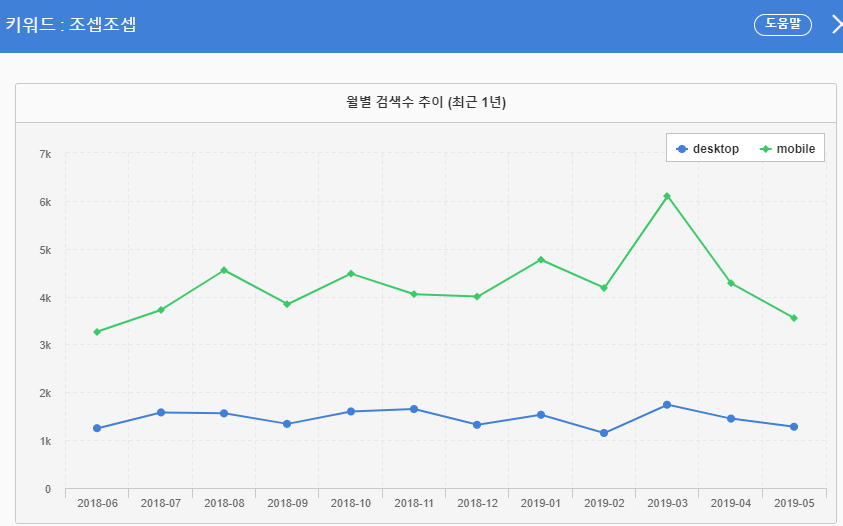The Spectrum of Influencer Marketing in Korea
From humble beginnings as internet users who shared their opinions and passions online, influencers of today have become content fodder in and of themselves.
An influencer, as defined by the Oxford English Dictionary, is a person with the ability to influence potential buyers by promoting or recommending items or services on social media. Looking back at the history of Korean social media, the initial concept that comes closest to the influencers of today would be ‘Power Bloggers’. Originating from Korea’s largest search engine, Naver, ‘Power Bloggers’ gained huge popularity in the early noughties by sharing their fashionable and aspirational lifestyles, or by reviewing products and services that were either purchased or provided for free.
Power Bloggers’ undeniable influence on the marketing industry took a turn when some of the content shared was found to be less than genuine. Furthermore, the introduction of a new era of social media in the late 2000s ushered in the likes of Facebook, Twitter, Instagram and Youtube. These platforms now dominate the influencer sphere as the go-to websites and apps for engaging and sharing with followers.

‘The Scale of Influencer Marketing Market’ Source: Mediakix, unit : USD 100
Influencer Niches
From mega influencers with over 1 million followers such as PONY (makeup artist, the founder of PONY Syndrome), Daedosegwan (game-playing live streamer, about 2 million subscribers on Youtube), and Heopop (Kids content creator, about 3 million subscribers on Youtube), to nano influencers with several hundred followers, their effect on pop culture is enormous. According to a survey, influencer marketing is growing with unprecedented speed.
However, it’s not only mega influencers who hold sway over markets and industries. There are smaller influencers who have tighter followings and viewerships with undeniable influence on social media networks across various niches.
Kongkong, an Instagrammer with 0.5 million followers, started sharing videos of her cooking for her family. Her simple yet detailed style caught the attention of followers and fellow Instagrammers, in particular, her use of utensils from British brand Joseph Joseph. She soon began offering a ‘Daigou‘ service for Joseph Joseph goods for her followers. Even though Joseph Joseph does not yet sell in Korea, their search volume is quite high in Naver, and climbs noticeably higher when Kongkong opens a group purchase event.

Search volume of keyword ‘Joseph Joseph’ in Naver from last 12 months
Heayoun Han, who worked as a celebrity stylist, created her own Youtube channel called 슈스스 TV (Shusisi TV), and has become one of the hottest rising influencers of 2019. In one of her most viewed videos, she introduced a range of luxury goods from brands such as Dior, Givenchy, Fendi and Tom Ford. LOEVE, the brand with the lowest search volume among those featured, increased from an average of 20k, to almost 50k after her video. Though she does not have the biggest following, this significant jump in search volume is a testament to how significant influencers can be when it comes to product and brand marketing.
Implementing Influencer Marketing in Korea
One thing that is crucial to understand is that influencer marketing is based on rapidly changing trends and popular sentiment, combined with the inherent trust between an influencer and their followers.
Here are some tips and things to keep in mind for those planning to implement influencer marketing in Korea.
Morality
Firstly, when implementing influencer marketing in Korea, be sure to do your research and find influencers with good moral characters and reputations, who are also relevant to your industry.
The Korean market requires a greater sense of morality from its public figures than most. No matter how strong your product or marketing strategy is, the influencer you work with can make or break your campaign. There have been several notable influencer and celebrity scandals tied to high-profile brand marketing campaigns that have caused significant uproar and damage to business. With this in mind, when considering influencers to collaborate with, it is important to remember that the ‘morality’ of the person representing or promoting the product and/or services is an essential element of a successful marketing campaign.
Trust
The element of trust that makes influencer-follower relationships so unique and marketable is second to none. Since trust is an essential element in any marketing campaign, consumers who purchase from, or as a result of an influencer they perceive as trustworthy, are more likely to trust the brand being represented, and repurchase.
Local Law & Legislation
Last but not least, take extra care to review and seek counsel on relevant laws and legislations in the Korean market. As ‘influencer marketing’ is a relatively new strategy, there aren’t many established laws regulating this particular industry. However, this does not mean it is free from any type of regulation. Influencer marketing is mostly regulated under ecommerce legislation. For example, when 4 Power Bloggers neglected to disclose that the products they were promoting had been gifted by their respective brands, the Korean Fair Trade Commission decided to fine them 5 million KRW (GBP 35,000) each. More recently, a Mukbang Youtuber known as Benz (밴쯔), was convicted for false and exaggerated advertising by the Seoul District Prosecutor’s Office.
Navigating the world of influencer marketing in Korea can be tricky, so it’s important for both brands and influencers to be aware of legal guidelines. The ‘Influencer Industry Association‘ was founded on July 16th 2019 for precisely this reason. Mr In Tae-Yeon, the Presidential Secretariat for self-employed businesses said ‘The Korean government hopes the association will help provide a safe environment for the influencer industry to thrive and grow’.
Transparency is Key
The head of Google Korea’s Youtube team, Hyeon-Jin Lee once said: “Influencers are building strong followings based deeply on trust, and increasingly broadening their areas of activity to advertisement and publication that goes beyond simple content creation”. With the global influencer market expected to be worth as much as 10 billion dollars by 2020, it’s clear that transparency is crucial both legally, and as a key component of successful influencer, marketer, and consumer relationships going forward.
Known for its tendency to rapidly adapt to global trends, influencer marketing is now considered a highly lucrative marketing strategy in Korea, for both SMEs and large corporations. Influencers’ unique ability to meet their followers where they’re at in an authentic, relatable, and approachable way, whilst generating engagement that is difficult for brands alone to replicate is a highly sought after commodity. More than goods and services, influencers represent aspirational lifestyles for consumers to strive towards, and a valuable, inimitable bond.
If your business is looking to branch out into Korea, or other East Asian markets, be sure to contact Locaria today to help you launch your social media marketing and localisation strategy.



